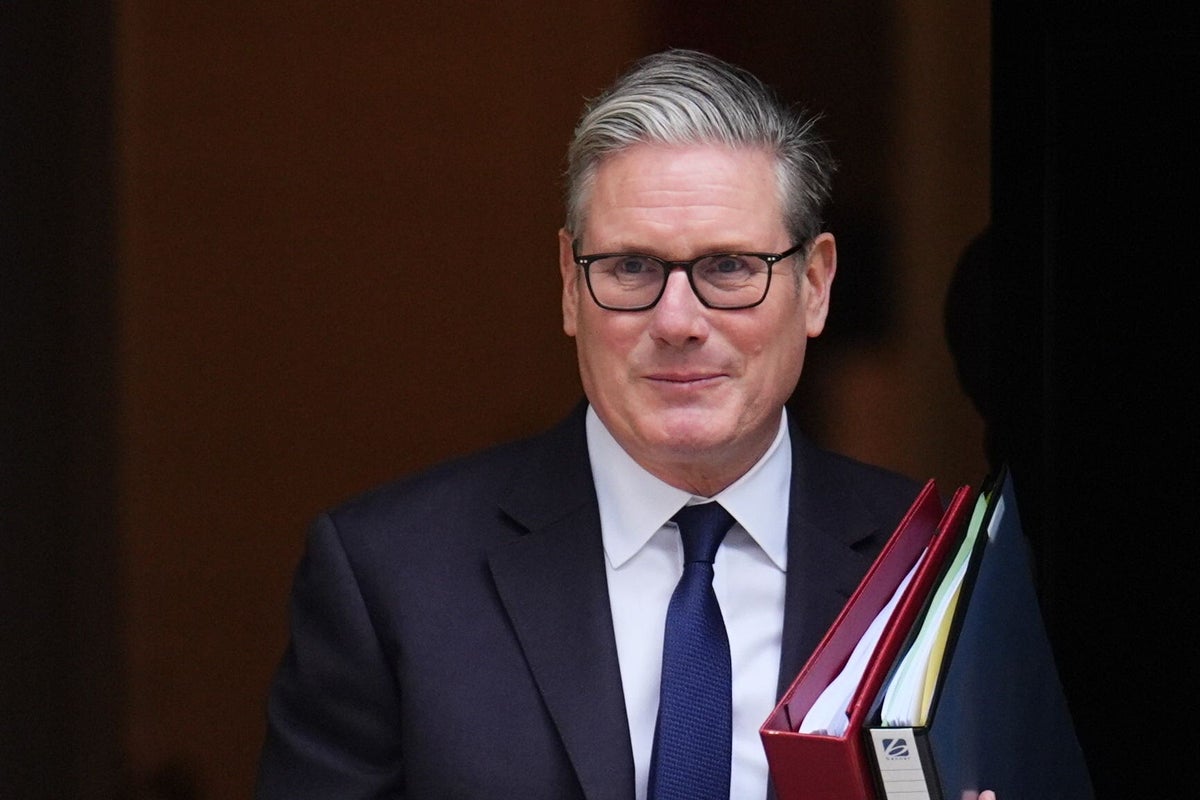
Sir Keir Starmer faces further questions about the collapse of the China spying case after the Government’s evidence warned of Beijing’s large-scale espionage but stressed the desire to seek a positive relationship with the economic superpower.
Three statements provided by deputy national security adviser Matt Collins as part of the Crown Prosecution Service’s case were published late on Wednesday night.
The CPS dropped the case after deeming the evidence did not show China was a threat to national security.
But in the statements, Mr Collins called China “the biggest state-based threat to the UK’s economic security”.
He said Beijing’s “highly capable” intelligence services are carrying out “large-scale espionage operations against the UK to advance the Chinese state’s interests and harm the interests and security of the UK”.
The Chinese activities “threaten the UK’s economic prosperity and resilience and the integrity of our democratic institutions”, he said.
But in the last paragraph of his third and final statement in August, just weeks before the case collapsed, he set out the Government’s approach to China.
He said it was “important for me to emphasise” that the Government “is committed to pursuing a positive relationship with China to strengthen understanding, co-operation and stability”.
The current Government’s “Three C’s” approach is based on co-operation where there are of shared interests, competition in other areas and challenge on issues including national security.
Tory leader Kemi Badenoch questioned why Mr Collins’s final statement set out Labour’s approach to China.
She said: “Yesterday the Prime Minister insisted that the deputy national security adviser’s witness statements reflected the last Conservative government’s policy towards China.
“Now we discover that a witness statement sent under this Labour Government included language describing the current Government’s policy towards China, which was directly lifted from the Labour Party manifesto. Did an official, adviser or minister suggest that this should be included?
“The Government’s story is falling apart under scrutiny, and the only thing that is clear is that the Prime Minister knew the spy case was collapsing but did not act.”
She called on Sir Keir to publish any correspondence and minutes of meetings relating to the case, claiming Sir Keir “doesn’t have the backbone to stand up to Beijing”.
The case against Christopher Cash, a former parliamentary researcher, and Christopher Berry was dropped by the CPS in September.
Both men, who deny wrongdoing, had been accused of passing secrets to China.
Government minister Stephen Kinnock told Times Radio the Conservatives were making “unsubstantiated allegations” about “political pressure” being used to influence the decision to drop the prosecution.
He said Mr Collins was “reflecting the wider context of the relationship”, adding: “It is, of course, a matter for the CPS to determine whether or not the bar for prosecution, the evidentiary basis, has been met.
“But the wider job of the deputy national security adviser is to provide the wider context of our economic, diplomatic and national security relationship with China.”
He declined to say whether he believed director of public prosecutions (DPP) Stephen Parkinson was the right man for the job.
Mr Kinnock told Sky News: “I believe the DPP told MPs yesterday that he felt the evidence was 95% of the way there, but there was a 5% gap that was missing.
“I think he’s the best person to explain what that 5% was missing was.
“We are deeply disappointed that the prosecution didn’t go ahead. We think a big part of the reason for that was the abject failure of the previous government to update the legislation.
“And it is also, I think, quite appalling now that we have the Leader of the Opposition playing politics with our national security, throwing around unsubstantiated allegations about this Labour government deliberately collapsing the trial. That is patently nonsense.”
DPP Mr Parkinson said in a letter last week that the evidence needed to show that China represented a threat to national security when the alleged offences took place.
There was an “ongoing obligation” to independently assess the evidence of a case, he said, stressing that while he stood by the decision to bring charges in April 2024, a High Court decision weeks later meant the threshold for the evidence had changed.
He said he had made efforts to obtain further evidence over many months but that “none of these stated that at the time of the offence, China represented a threat to national security”.
Former researcher Mr Cash said he is “completely innocent” and has been “placed in an impossible position” because he has not been able to prove it in a public trial.
“I wish to reiterate that I am completely innocent. Not just because the case against me was dropped, but because at no point did I ever intentionally assist Chinese intelligence,” he said on Wednesday night.
He added: “I have been placed in an impossible position. I have not had the daylight of a public trial to show my innocence, and I should not have to take part in a trial by media.”
Meanwhile, friends of Mr Collins said he did not understand why his evidence was insufficient for the case to proceed, The Spectator reported.
The magazine also cited several sources from the last government saying that two serious cases of foreign spying involving Russia and China were suppressed, reportedly involving hacking of the Ministry of Defence and Downing Street.
